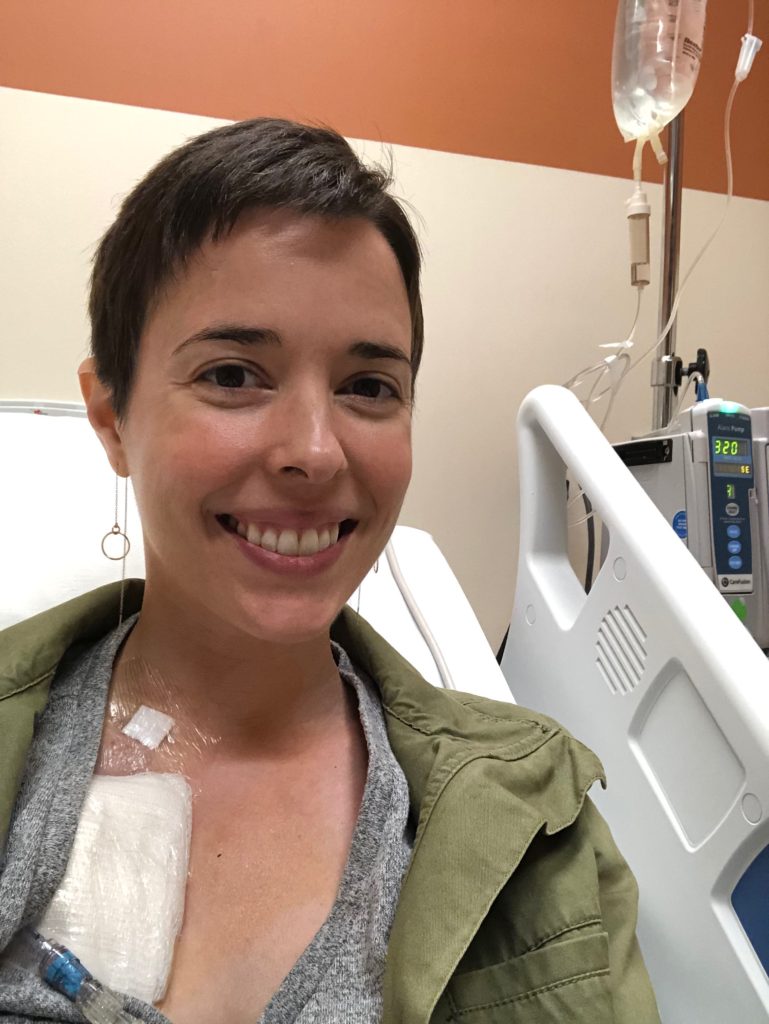War metaphors and ‘strong’ survivors: Do the words we use to discuss breast cancer help or hurt patients?
by: Heather Gehlert
posted on Tuesday, October 15, 2019
It’s October, and that means Breast Cancer Awareness Month is here. With that comes a flurry of fundraisers, seemingly endless pink-themed products, and ample media coverage highlighting how everyone from researchers to physicians to individual patients are fighting against this deadly and often disfiguring disease, which is the second leading cause of cancer death among women in the United States.
Many news stories and casual conversations alike include words like “warrior,” “battle,” and other militaristic terms to describe efforts to end breast cancer. But how do the people whose lives are at stake feel about these words? Do they confer a sense of strength and empowerment? Or do they do more harm than good?
That’s a question that a fellow journalist and woman with breast cancer recently posed in one of my online support groups, and it’s one that I’ve been asking myself a lot lately, now that I’ve been diagnosed with an aggressive form of the disease.
Before I became a patient myself, I had strong opinions on the subject. As a communication manager for the Berkeley Media Studies Group, which studies language and news portrayals of health issues, I know that words are rarely neutral. And as the daughter of a breast cancer survivor, I worried that referring to people with breast cancer — or any cancer — as warriors could pressure them to put on a brave face and appear strong when they may feel anything but. Beyond that, when someone dies from cancer, journalists and others often say they “lost the battle,” potentially giving the impression that they didn’t fight hard enough. But as anyone with the disease knows, no amount of determination guarantees a positive prognosis.
Then there’s the fear that war metaphors can evoke. When my oncologist told me, referring to the start of chemotherapy, that I needed to be “in Afghanistan” within two weeks, I was terrified. If treatment is that brutal, how will I ever survive it? Is my body strong enough to handle this? Will I have the endurance needed to complete all my infusions? Although I have several other health issues that complicate my treatment plan, research shows that I’m far from alone in reacting with fright. Battle metaphors make people more fatalistic and may cause them to ignore important symptoms or even discourage them from taking steps to reduce their disease risk, according to a new study on the psychological impact of how we communicate about cancer.
The study also found that people who read about cancer patients’ experiences rated cancer treatments as more difficult when the descriptions included war metaphors, as opposed to journey metaphors or no metaphors. However, the researchers did not assess how one key population views such language: people currently living with cancer.
To find out more, I went back to my online support group. An informal scan of patients’ posts showed mixed results. Many women with breast cancer said they reject war-based language, noting that they did not choose to fight; they did not choose to be strong. They are strong because they have to be. Still, many others said they find battle-oriented phrases empowering and feel that “war” is the right word to describe the grueling treatment process and all its lasting effects on physical and mental health. Such language, they explained, conveys the seriousness of the issue and legitimizes our struggle.

My own views on the matter have become more nuanced since I was diagnosed. While my doctor’s war metaphors scared me, I’ve gathered strength from my family and friends’ use of similar terms, especially “warrior.” On my first day of chemo, which involved several unexpected issues and lasted 14 hours, I carried their voices and their votes of confidence with me. Every “keep fighting” and “you can beat this” made it just a little easier to look at my IV drip — and the protective suits the nurses had to wear to administer it — and trust that I can handle the 17 other infusions I still have ahead of me.
Those words didn’t dissipate after I left the hospital either. I clung to them the following week as I endured debilitating fatigue, severe pain, and a range of other serious side effects. And those phrases will stay with me as I approach my next round of chemo, allowing me to face it with courage instead of complete dread. I’ve even embraced war metaphors on social media, often adding #warriorinpink to my posts.
Ultimately, each person deals with cancer differently. Just as friends and family should find out what language resonates with a loved one facing cancer, journalists writing awareness-raising stories should ask their sources who have cancer how they want to be characterized.
As for me, call me a warrior. Call me strong. Call me brave. Whether I am any of these things is debatable, but if I’m going to get through a year of chemo, surgery, and another 5+ years of other treatments, I need to believe that they’re true. And with enough repetition, I just might.
What do you think of using war metaphors to talk about cancer? Let us know your connection to this issue and your perspective on the words that surround it. Connect with us on Facebook, Twitter, or by emailing info@bmsg.org.



